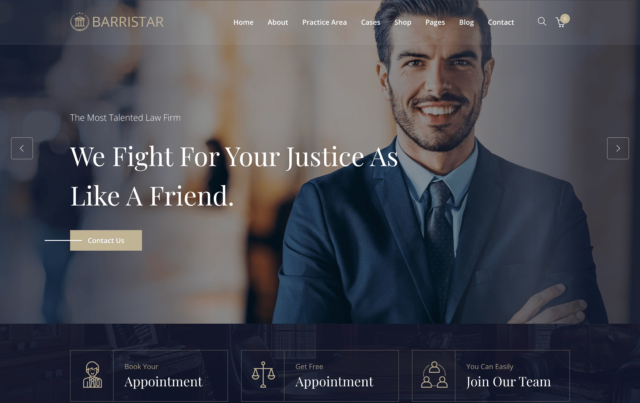Creating content for an attorney’s website is a crucial aspect of marketing that requires a delicate balance between informative and compliant material. Law firms must adhere to strict advertising regulations to avoid misleading potential clients and to maintain professional integrity. Each state has their own nuanced advertising regulations when it comes to legal website content.
Here, we give a high level overview and outline the types of content that are permissible and those that should be avoided.
Permissible Content for Attorney Websites
- Educational Information:
- Legal Articles and Blog Posts: Writing about general legal principles, recent case law, or changes in legislation helps establish authority and educate visitors. Ensure that the content is factual, unbiased, and avoids offering specific legal advice.
- FAQs: Addressing frequently asked questions about legal processes, rights, and common issues can help potential clients understand their situation better and consider seeking legal help. FAQs also help with organic SEO.
- Attorney Credentials:
- Biography and Experience: Highlighting an attorney’s education, years of practice, areas of specialization, and professional achievements provides credibility. Be honest and transparent about your qualifications.
- Case Results and Testimonials: Sharing successful case outcomes and client testimonials, with appropriate disclaimers, can demonstrate competence. Ensure that these statements are truthful and do not create unjustified expectations.
- Practice Areas:
- Services Offered: Clearly describe the legal services provided by the firm. Use specific language to outline practice areas without exaggerating expertise or guaranteeing outcomes.
- Accolades and Memberships:
- Professional Associations and Awards: Mention memberships in bar associations, legal organizations, and awards received. Verify that these affiliations and honors are current and accurately represented.
Content to Avoid on Attorney Websites
- Misleading Statements:
- Superlatives Without Justification: Avoid using terms like “the best lawyer,” “top attorney,” or “most successful” unless they can be substantiated with verifiable evidence such as awards or rankings by reputable organizations.
- Guaranteed Outcomes: Never guarantee specific results, such as “We will win your case,” as it can mislead potential clients and violate advertising rules.
- Comparative Statements:
- Comparisons to Other Lawyers: Statements comparing your services to other attorneys, such as “better than other firms” or “more affordable than competitors,” can be considered subjective and potentially misleading without objective evidence.
- Client Confidentiality Breaches:
- Case Details Without Consent: Sharing detailed case information without client consent can violate confidentiality agreements. Always anonymize case details or obtain explicit permission from clients before publishing.
- Unverified Client Testimonials:
- Exaggerated Testimonials: Be cautious with client testimonials that may exaggerate the attorney’s abilities or imply guaranteed outcomes. Use genuine client feedback and include disclaimers clarifying that past results do not guarantee future success.
Key Attorney Advertising Rules
- American Bar Association (ABA) Model Rules:
- Rule 7.1: Communications concerning a lawyer’s services must not be false or misleading. This includes making false claims or omitting facts that could make the statement misleading.
- Rule 7.2: Advertising must include the name and office address of at least one lawyer or law firm responsible for its content.
- State-Specific Regulations:
- Each state has its own rules and guidelines for attorney advertising. For example, California’s Rules of Professional Conduct require that all communications must be truthful and not misleading (Rule 7.1), and Florida mandates that advertisements cannot create unjustified expectations about the results the lawyer can achieve (Rule 4-7.13).
- Federal Trade Commission (FTC) Guidelines:
- The FTC requires that all advertising, including attorney advertising, must be truthful, not misleading, and substantiated. Claims made in advertisements should have evidence to back them up.
Creating compliant and effective legal content for an attorney’s website involves careful consideration of advertising rules and a commitment to honesty and transparency. By focusing on educational material, verified credentials, and truthful statements, law firms can build trust with potential clients while staying within the bounds of ethical advertising. It is also always best to consult the advertising rules and regulations for your state to ensure you are staying compliant with the content on your law firm website.
At Potenture Media Group, not only are we always researching what is considered compliant website content, but we also always consult your state’s specific advertising regulations to ensure full compliance.








